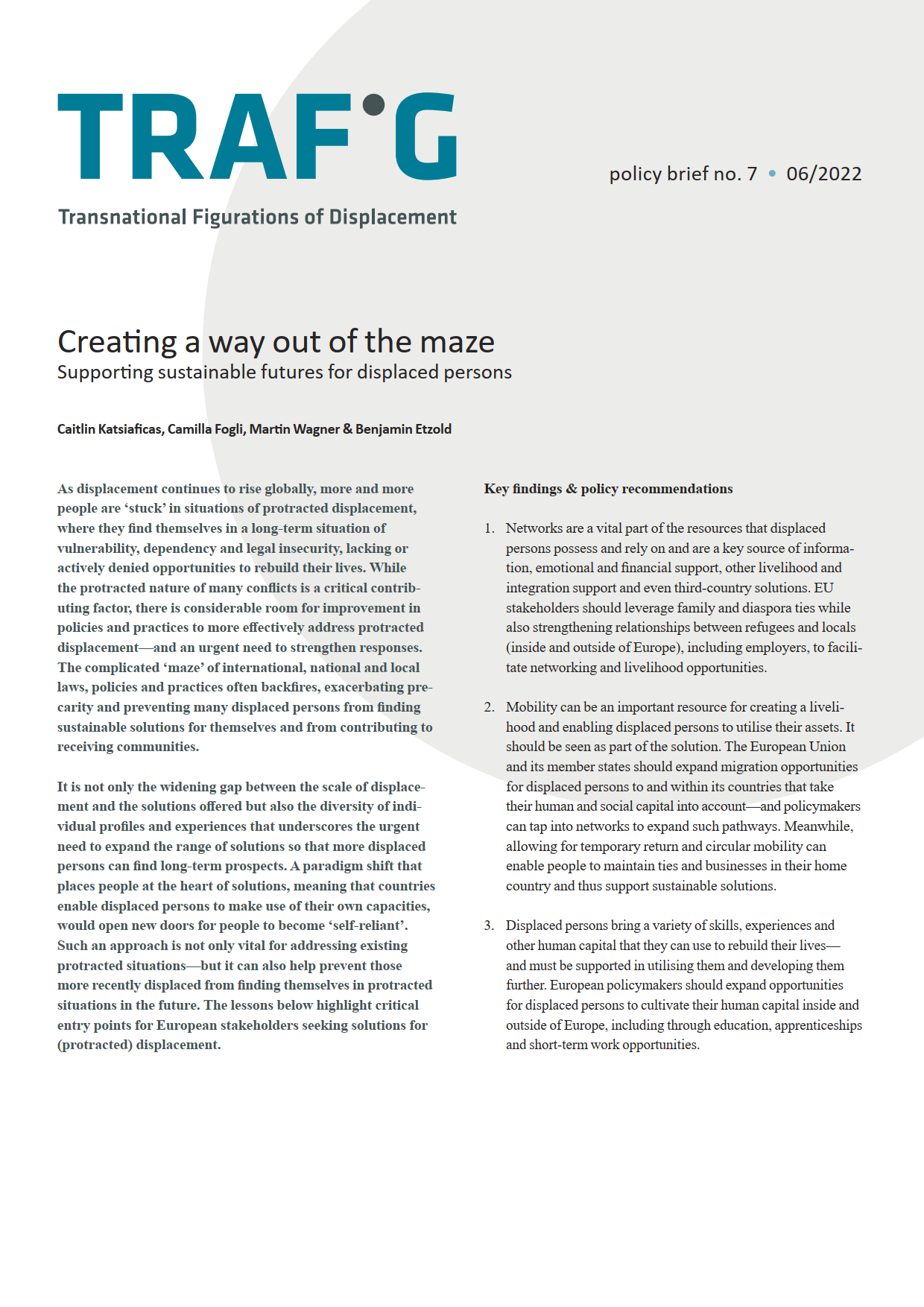TRAFIG policy brief no. 7
Creating a way out of the maze: Supporting sustainable futures for displaced persons
As displacement continues to rise globally, more and more people are ‘stuck’ in situations of protracted displacement, where they find themselves in a long-term situation of vulnerability, dependency and legal insecurity, lacking or actively denied opportunities to rebuild their lives. While the protracted nature of many conflicts is a critical contributing factor, there is considerable room for improvement in policies and practices to more effectively address protracted displacement—and an urgent need to strengthen responses. The complicated ‘maze’ of international, national, and local laws, policies, and practices often backfires, exacerbating precarity and preventing many displaced persons from finding sustainable solutions for themselves and from contributing to receiving communities.
The final policy brief of the TRAFIG project argues that a paradigm shift that places people at the heart of solutions is urgently needed. This means that countries must enable displaced persons to make use of their own capacities to open new doors for people to become ‘self-reliant’. Such an approach is not only vital for addressing existing protracted situations—but it can also help prevent those more recently displaced from finding themselves in protracted situations in the future.
Drawing lessons from more than 3 years of research, this policy brief highlights critical entry points for European stakeholders seeking solutions for (protracted) displacement.
Key findings & policy recommendations
- Networks are a vital part of the resources that displaced persons possess and rely on and are a key source of information, emotional and financial support, other livelihood and integration support and even third-country solutions. EU stakeholders should leverage family and diaspora ties while also strengthening relationships between refugees and locals (inside and outside of Europe), including employers, to facilitate networking and livelihood opportunities.
- Mobility can be an important resource for creating a livelihood and enabling displaced persons to utilise their assets. It should be seen as part of the solution. The European Union and its member states should expand migration opportunities for displaced persons to and within the its countries that take their human and social capital into account—, and policymakers can tap into networks to expand such pathways. Meanwhile, allowing for temporary return and circular mobility can enable people to maintain ties and businesses in their home country and thus support sustainable solutions.
- Displaced persons bring a variety of skills, experiences, and other human capital that they can use to rebuild their lives—and must be supported in utilising them and developing them further. European policymakers should expand opportunities for displaced persons to cultivate their human capital inside and outside of Europe, including through education, apprenticeships, and short-term work opportunities. They should also help displaced persons use their experience by expanding efforts to recognise their skills and qualifications and enabling mobility within and across countries so that those with in-demand skills can pursue job opportunities.
You can download the policy brief here: TRAFIG_policyBrief_7_web.pdf
Authors:
Caitlin Katsiaficas, Camilla Fogli, Martin Wagner and Benjamin Etzold
please cite as:
Katsiaficas, C. et al. (2022): Creating a way out of the maze: Supporting sustainable futures for displaced persons. (TRAFIG policy brief no. 6). BICC. DOI: 10.5281/zenodo.6490913
